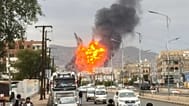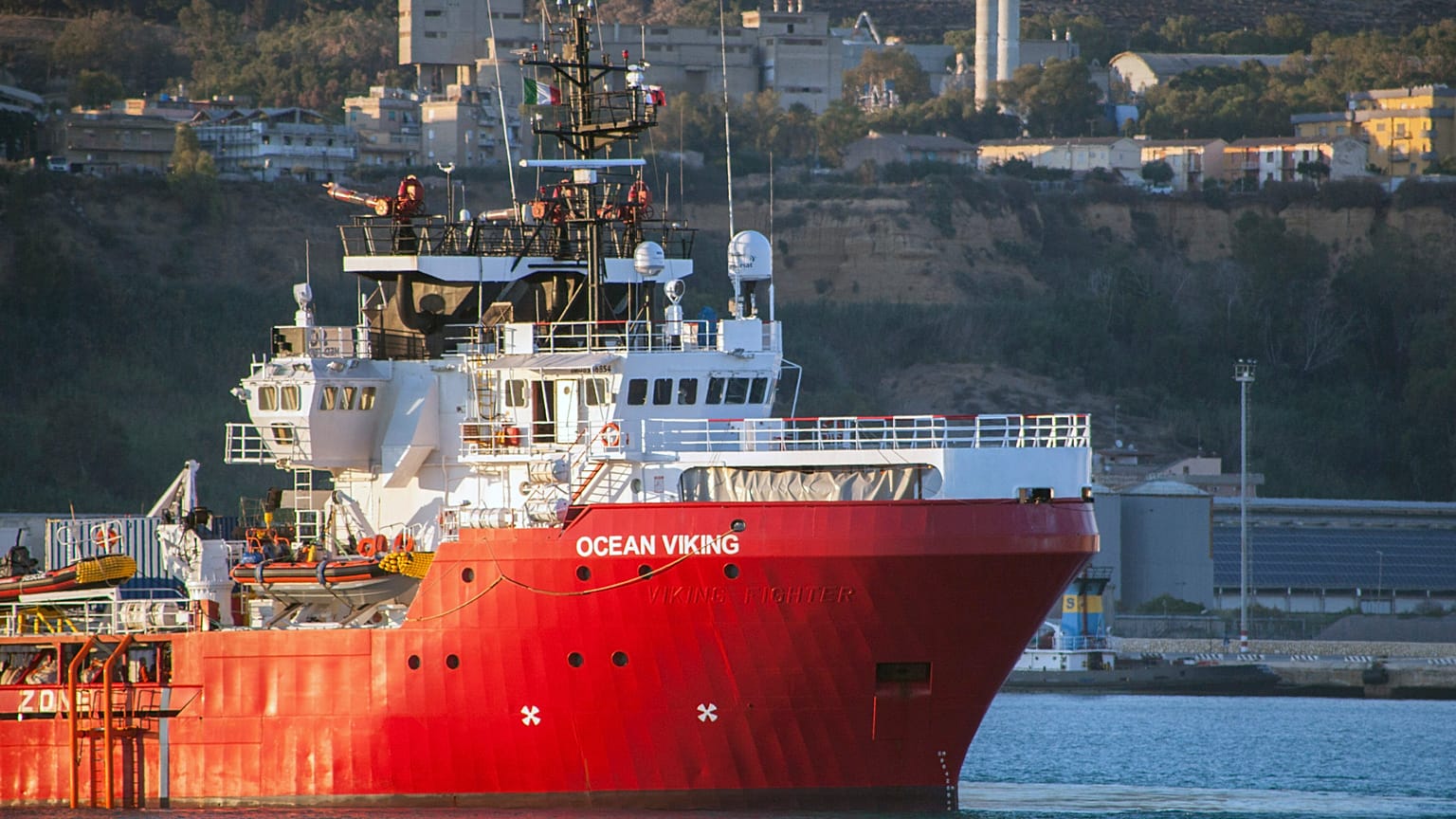After over a week at sea, the first individuals began disembarking the Ocean Viking aid vessel at a Sicilian port late on Monday night.
 ADVERTISEMENT
ADVERTISEMENT
The 180 migrants aboard the Ocean Viking rescue ship began disembarking at Sicily's Porto Empedocle late on Monday, according to the NGO SOS Mediterranee.
They were at sea for over a week, after being rescued by the French NGO between June 25 and 30.
The ship's docking request had been ignored at several other ports in Italy and Malta.
SOS Mediterranee on Friday reported episodes of severe unrest, including suicide attempts and threats to the ship's crew.
Those on board included people from a range of countries including Pakistan, Eritrea and Nigeria with a pregnant woman and 25 children among them.
SOS Mediterranee reported authorities were carrying out COVID-19 tests aboard the ship on Sunday.
The first individuals whose tests had come back negative disembarked around 23:40 on Monday and walked a hundred metres to board the Moby Zaza ferry under the supervision of Italian police, according to AFP.
The migrants will be quarantined on the Italian ferry Moby Zaza for two weeks due to the COVID-19 pandemic.
Operations impacted by COVID-19
"The acute psychological distress remains," Laurence Bondard, operations communications officer at SOS Méditerranée told Euronews from the ship as it was anchored off Porto Empedocle on Monday. "Many survivors have been expressing intent to harm themselves for several days now.
"They all have faced horrific past experiences in their countries of origin, in their journey in Libya, so SOS Méditerranée's medical team as well as our rescue team remain very vigilant and attentive this morning and throughout the day until disembarkation is actually over."
She explained that the COVID-19 pandemic had forced the NGO to operate in a very challenging context, with personal protective equipment limiting interactions and impairing communication with the migrants on board.
All survivors wore masks and had their temperatures checked every morning and evening, she said, while the NGO workers wore gowns, masks, protective eyeglasses, comply with social distancing rules and change their clothes before entering their cabins at night.
"All this did have an impact in our way of operating and also in the way we could interact with the survivors. They could never see our smiles and sometimes not even the eyes, hidden behind the eyeglasses," Bondard said.
"So we try and do our best to make our relationship with them as humane as possible, to humanise it in different ways. We have badges showing our pictures with our smiles, for example."













